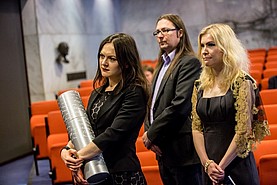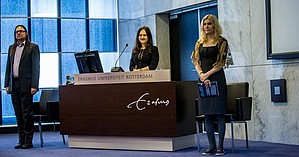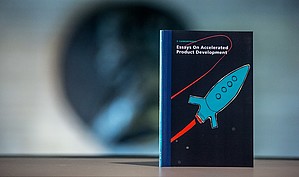PhD Defence: Essays on Accelerated Product Development

Pinar Cankurtaran’s dissertation, ‘Essays on Accelerated Product Development’, seeks to expand scholarly knowledge on NPD speed by examining (1) the effect of speed on performance given the inconsistencies in the empirical findings; and (2) how product development can effectively be accelerated, taking into account uncertainty as a contingency factor.
The first study is a meta-analytic integration of prior research on NPD speed. It shows that faster product development is closely – and positively – related to new product performance. However, methodological characteristics of the primary studies have a marked influence on the magnitude and significance of the speed-success link.

The second study investigates how NPD experience accumulated by organizational members that are not part of a given NPD project might spill over to the focal project and affect its cycle time. Using learning curve methodology, it quantifies the time performance implications of NPD experience, and assesses whether uncertainty plays a role in the realisation of time performance improvements. The analyses reveal that both specialized and related organizational experience help decrease project cycle times, but related experience is more influential for highly uncertain projects than for less uncertain ones.
The third study uses a decision experiment, investigating how project innovativeness, a major source of uncertainty in NPD, influences acceleration strategy choice, while also taking into account the extent of acceleration that is being sought to achieve.
The results indicate that practitioners are mindful of product innovativeness when selecting acceleration strategies. As such, the findings resonate with existing work that showed project management styles to be shaped, albeit partially, by the project’s level of uncertainty.
Pinar defended her dissertation in the Senate Hall at Erasmus University Rotterdam on Thursday, 18 September 2014 at 11:30. Her supervisors were Professor Fred Langerak (Technische Universiteit Eindhoven) and Professor Gerrit van Bruggen (ERIM). Other members of the Doctoral Committee were Professor Ale Smidts (ERIM), Professor Geert Duijsters (Tilburg University), and Professor Jan van den Ende (ERIM).
About Pinar Cankurtaran
Pinar Cankurtaran was born in 1982, in Ankara, Turkey. She received the B.Sc. degree in Business Administration from Bilkent University in Turkey, and the M.Sc. degrees in International Development and Management Research from the University of Bath and the University of Oxford, respectively, in the United Kingdom. She received the M.Phil. in Business Research from the Rotterdam School of Management at Erasmus University, and is currently an assistant professor of new product marketing at the Faculty of Industrial Design Engineering, Delft University of Technology. Her primary research interests so far have been new product development speed, organizational learning, and strategic new product development, but she has recently started to venture into other topics such as new product adoption. Her work has been published in the Journal of Product Innovation Management, and presented at PDMA 2008, Marketing Science 2010, IPDMC 2011 and IPDMC 2014.
Abstract of Essays on Accelerated Product Development

The past three decades have seen many companies adopting time-based strategies in an effort to bring their products to market quickly. While this trend in the industry has given rise to extensive scholarly interest in product development speed, extant literature has yet to provide a coherent account of its consequences for new product development performance, its drivers, and the conditions under which these drivers are beneficial.
Motivated by the clear need for more work the area, this dissertation seeks to expand scholarly knowledge on NPD speed by examining (1) the effect of speed on performance given the inconsistencies in the empirical findings; and (2) how product development can effectively be accelerated, taking into account uncertainty as a contingency factor.
This dissertation consists of three studies, each of which approaches the subject matter from a different angle and investigates it in different theoretical domains. Study 1 focuses on the consequences of development speed, and uses meta analytic methods to shed light into how development speed relates to new product success, taking into account its different dimensions. Studies 2 and 3 direct the attention to the antecedents of development speed, also taking into account the moderating role of uncertainty. While study 2 treats acceleration as a continuous process that is a by-product of the firm’s prior NPD experience, study 3 views acceleration as achievable primarily by active management intervention in the form of acceleration strategies. Collectively, the three studies offer a comprehensive account of product development speed and its successful management.
Photos: Chris Gorzeman / Capital Images


